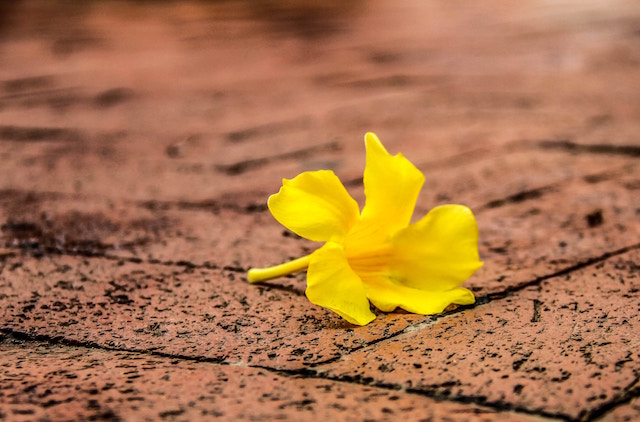(This is the second post in a series by Laura, a mother who lost her son. To read her first post, click, Grief: A Mother’s Journey)
I’ve been thinking about something Dr. Nicastro said in the introduction to this blog:
“Grief, like love, is one of the most intensely personal things we humans will ever experience.”
Seeing grief and love side-by-side like that made me think of grief as a side effect of love. And an inevitable one at that. After all, we all will have to lose someone we love. Therefore, we will grieve. If there were a sure way to avoid grief, would I take it? Would you? (And I don’t mean deny grief, I mean never feel it.) Would we take it even if it meant not loving?
Love not, grieve not, I suppose.
Maybe grief comes in like this crazy wrecking ball, smashing everything in sight, because when we’re loving, when we’re really loving with our whole hearts, we’re not thinking about loss. Even in the case of a terminal illness of a loved one, as long as the person is still with us, even as we hold the knowledge in our rational minds that they won’t be with us much longer, love takes up enough space—mental, emotional—that we’re not grieving, not exactly. We may be in pain, we may be terrified, but the sharp, acute grief comes when that person—and therefore the hope—is gone.
Maybe love allows a sort of denial—the denial of our mortality, the denial we will ever have to face the loss that our rational minds know is inevitable—and that’s the first thing the wrecking ball of grief demolishes…the denial.
I have a friend who was so devastated by having to euthanize her 18-year-old cat that she vowed to never again have something she loved so much that she couldn’t bear to lose. That friend has been true to her word. More than 20 years later, she has no pets. No kids. No boyfriend that lasts more than a few “fun” months. Sometimes I wonder how much she can care about me if she keeps me around.
But let me tell you — I fiercely envied her in the year after my son died. I envied her so intensely that it started feeling like hate. I envied her neat, quiet, predictable life (grief is messy, loud, unpredictable). I didn’t stop to think about what that neat, quiet, predictable, grief-free life cost my friend. I just wanted in, even as I knew it was too late. I had loved my son fiercely, from the first moment I saw him and throughout his twenty-three years of life, and I couldn’t ever undo that, dissociate from it, or try to feign a clay heart that hadn’t been reshaped by grief.
And yet, we go on loving, grief a shadow right behind the sun. Isn’t that where we feel most alive, most human, within the love? Even as loving someone/something makes our hearts most vulnerable?
I remember hearing once that when you become a parent, your heart is pulled from your chest and hovers, unprotected, outside your body from then on. That metaphor resonates for me.
Three years after my son’s death I had to make the decision to euthanize my 13-year-old dog. As these decisions are, it was an extremely difficult one. Still, part of me thought that it couldn’t touch me the way it would’ve had I not lost my son. I’d assumed a vital part of me had been singed into numbness. That grief had irrevocably changed me. That although of course I loved my sweet, sweet dog, his death couldn’t bring me to a place of breath-stealing grief because of that numb place.
I was wrong.
I’d scheduled a vet to euthanize him at home—for my sake and his; he’d had health problems for years and didn’t associate going to the animal hospital with anything pleasant—and though I’d spoken with her over the phone, I hadn’t met her before. I saw her pull up at the designated time, and when I opened the door to her (before she knocked), I burst into tears. She hugged me and held me when I cried. Once I graspingly regained composure (a thin, wobbly, very temporary composure at best), I tried to apologize for crying on her before I’d even introduced myself. She wouldn’t allow it. There is much kindness in the world.
The point I’m trying to make is that even when I thought that grief had drained away a big chunk of my capacity to love, I was wrong. I loved that dog, I grieved that dog. Despite how much emptier the world felt without my son in it, my heart still found reasons to love, had people and animals to love. And I’d go on loving. (At the time, the realization that I still “knew how” to love and that I’d continue to love was both comforting and frightening.)
Love and grief—personal and universal. And perhaps, somehow linked, too. The biggest difference that I see, though, is that love lasts much much longer. Actually, I like to think that there is no end point to love, regardless of whether the person’s life has already ended. Love feeds life, while grief mourns the loss of life.
How we go through life—and therefore, how we feel love and how we walk our grief journeys—is indeed intensely personal. But, as with most aspects of being human, I believe there’s a wider swath of common ground than isolated space. When I was suffering most deeply, though, probably within the first two years after my son’s death (though for me, grief was more of a spiral than a line, so I haven’t experienced neatly linear “stages”), I didn’t feel that common ground always. I felt isolated within my own pain, even when I sat in support groups.
Now I see that I could touch that commonality between breaths, between moments, between thoughts. And at times, I probably did, maybe without being consciously aware.
Just surviving was all I could ask of myself then. And that was an act of love, too.
Laura
(Photo by Derek Truninger at Unsplash)





